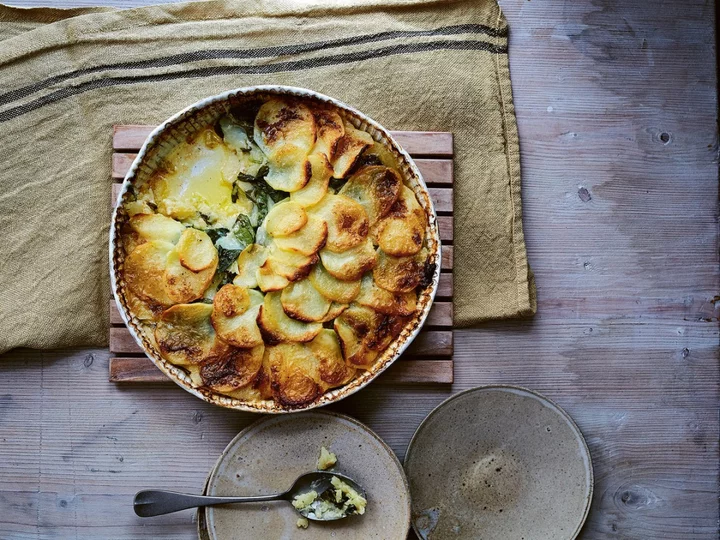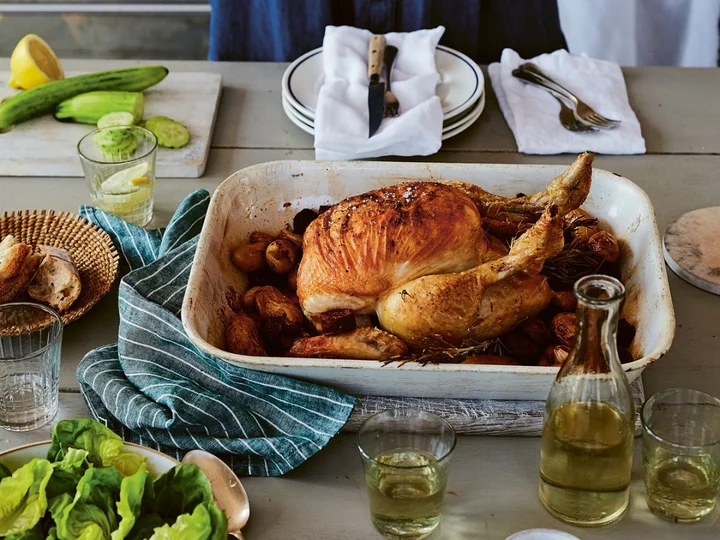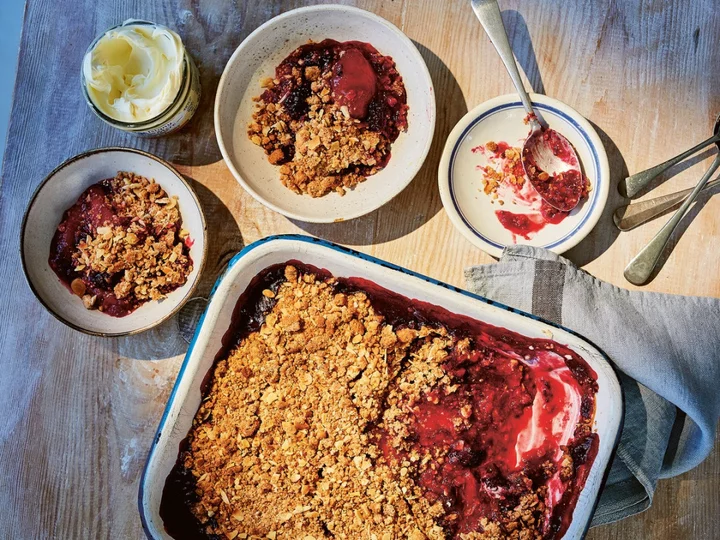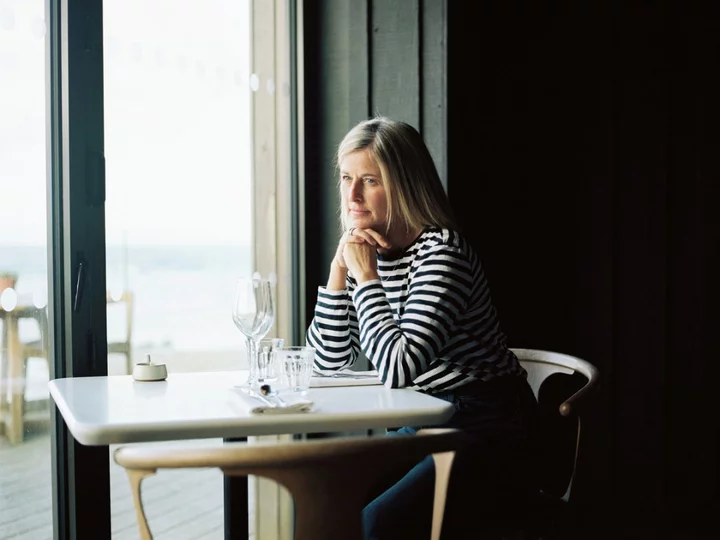
This is why you keep waking up at 4am – and what you can do about it
Ever find yourself awake, staring into space at four in the morning? Is it just a bad habit, or is there something more sinister going on? And why does it always seem to happen at 4am? “We start to experience less deep sleep after around four to five hours,” says Lisa Artis, deputy CEO of The Sleep Charity, who have partnered with Simba mattresses. And once we’re in that lighter sleep faze, we wake much more easily. If you generally fall asleep around 11pm – which is a very common bedtime, 4am wake-ups are more likely. And there are many factors leading to these inconvenient stirrings. Hormones “Sleep is guided by our internal clock or circadian rhythm. One of the most significant and well-known circadian rhythms is the sleep-wake cycle,” Artis continues. “Sleep is regulated by the levels of two hormones: melatonin and cortisol, which follow a regular 24-hour pattern. Melatonin assists you in dozing off, while cortisol helps get you up, and keeps you awake,” she explains. Keeping an eye on your hormones is important in preventing those late-night wake-ups. “Engage in calming activities before bedtime, such as reading, listening to soothing music, or practising relaxation techniques, like deep breathing or meditation,” says Dr Mariyam H. Malik, GP at Pall Mall Medical. Equally, pop your phone down for a bit. “Blue light from electronic devices can suppress melatonin production. Try to avoid screens for at least two hours before bedtime, or use blue light filters. It is best to charge them in a separate room overnight,” Malik adds. Diet Caffeine, heavy meals, alcohol, sugar, and a lack of magnesium or B vitamins could lead you to have a more disturbed night’s sleep, according to Malik. Sugar and carbohydrates may have a particular impact. “A diet high in sugar and refined carbohydrates can cause blood sugar fluctuations, leading to wakefulness during the night,” she says. “It’s unlikely you’ll feel hungry in the middle of the night if your blood sugar dips,” notes Artis, “but to reduce ungodly hour awakenings, trial alternatives for your last meal or snack of the evening. Instead of carb or sweet-based snacks, opt for protein-packed and magnesium-rich foods, like hard boiled eggs, cottage cheese, pumpkin seeds, spinach, dark chocolate, cashews, chicken thighs or turkey.” Protein can take the edge off your night-time hunger, she says, while magnesium is known to support sleep. Needing a wee Do you wake up needing to wee at the same time every night? “Try not to drink excessive amounts of fluids before bedtime,” advises Malik. “It’s important to stay hydrated, but try not to drink anything for around two hours before your usual bedtime. Go to the toilet before you go to bed to empty your bladder. ” Age and life stage “Sleep tends to become more disrupted as people get older,” Malik explains. “Sleep patterns change with age, and various factors can contribute to sleep disturbances in older adults. Some common reasons for sleep disruption in the elderly include changes in your circadian rhythm, decreased melatonin production, medical conditions or medications, and potential sleep disorders.” It can also affect women during the perimenopause. “The reproductive hormones – oestrogen and progesterone – are entwined with the sleep and relaxation hormones, melatonin and serotonin,” says Artis. “When oestrogen begins to fall before and during menopause, it can create a disturbance in the sleep-promoting hormone melatonin, meaning it can’t properly balance out cortisol. When this happens, the ability to fall and stay asleep is affected.” Recurring hot flushes, night sweats, dry skin, and low libido can signal waning oestrogen. Artis advises incorporating foods with high levels of phytoestrogens into your diet throughout the day to help with this. “Phytoestrogens imitate the natural estrogens found in your body. As a consequence, they can bind to your body’s oestrogen receptors and produce similar effects.” Try lentils, kidney beans, chickpeas, tofu, edamame, spinach, cauliflower and broccoli. Worrying Stress is not good for sleep. One study by Bupa even found that 32 million Brits wake up worrying about their health at precisely 4:05 am. The report, which surveyed 4,000 British adults, revealed that more than three-fifths of us wake up in the middle of the night. If you are finding yourself awake at all hours worrying, or waking up with stressful dreams, there are a few things that may help. “Keep a journal by your bedside and write down your worries before going to bed. This practice can help get your concerns out of your mind and onto paper, making it easier to let go of them temporarily,” says Malik. You may also want to “engage in mindfulness or meditation exercises before bedtime. Mindfulness can help you focus on the present moment, reducing anxiety about the past or the future.”
2023-07-28 15:55

Kraft Heinz defeats lawsuit over mac & cheese preparation time
By Jonathan Stempel A federal judge on Thursday dismissed a lawsuit accusing Kraft Heinz & Co of misleading
2023-07-28 06:53

How to watch England, Argentina and China in the 2023 Women's World Cup
This year's Women's World Cup saw one of its biggest upsets Thursday when Nigeria beat co-host Australia 3-2, and spectators will be hoping for as much drama Friday.
2023-07-28 04:55

Scientists say people have the ability to 'smell' rain before it arrives
Ever wondered why people say they can smell rain before it rains? They are not pulling your leg - there is real science behind it. It is all because of petrichor, made up from the Greek words "petra", meaning stone, and '"ichor", which refers to the golden fluid that flows in the veins of the gods in their mythology. It basically means the the "smell of rain" with the phrase coined by Australian scientists Joy Bear and Richard Thomas in 1964. Jeff Weber, a meteorologist with the University Corporation for Atmospheric Research Unidata Program Center told the Mirror: "Petrichor is caused by oils derived from plants, primarily leaves, that accumulate over dry periods. These oils settle into soils or onto pavement over time and are released into the atmosphere by being disturbed by rainfall." According to the Met Office, the reason people claim to smell rain because it comes is because "when a higher humidity is experienced as a precursor to rain, the pores of rocks and soil become trapped with moisture forcing some of the oils to be released into the air". Sign up to our free Indy100 weekly newsletter Despite some being released before it actually rains, the strongest smell is released during. This is when raindrops landing on soil "trap tiny air bubbles on the surface which then shoot upward" and "burst out of the drop throwing aerosols of scent into the air where they are then distributed by the wind". The smell is produced by a soil bacteria which releases a chemical called geosmin, which provides an "earthy", musky or fresh aroma. Before it rains, a person might be able to smell the scent of ozone, or O3, which is a naturally present gas in the atmosphere which gets its name from the Greek word 'ozein', or smell. It sometimes indicate that a storm is on the way because pockets of gas are pushed down to ground level by winds. This means that those who are sensitive to the smells will likely be able to pick them up. So now you know. Have your say in our news democracy. Click the upvote icon at the top of the page to help raise this article through the indy100 rankings.
2023-07-27 23:23

Wildfires in Portugal: Is it safe to travel to Lisbon and Cascais right now?
As wildfires rage across Sicily and Greece, Portugal is the latest Mediterranean country to be hit. A fire broke out on 26 July near the popular coastal holiday spot of Cascais, just 30km west of capital city Lisbon. The blaze started at 5pm in part of the Sintra-Cascais natural park, with strong winds fanning the flames and quickening the spread. Local residents chipped in to help the hundreds of Portuguese firefighters sent to tackle the fires, with some attempting to protect their homes and villages with buckets of water and hosepipes. “The fear now is that it will get to the houses,” local resident Ines Figueiredo told Reuters. “We try to help as much as we can with buckets (of water) ... but it’s not worth much.” Planes were also dispatched to waterbomb the blaze before night fell, alongside more than 600 firefighters. Winds of of up to 60km/h were the biggest obstacle to putting out the fire, according to the mayor of Cascais, Carlos Carreiras. A number of local residents have been evacuated as a precaution. If you’re booked to travel to Portugal, is it still safe to go? And what are your rights if you cancel a holiday? Here’s what we know. Where is affected by the wildfires? So far, the fire is contained to Sintra-Cascais natural park; it hasn’t spread as far as the resort of Cascais, popular with holidaymakers for its beaches and vibrant marina. Some villages within the vicinity of the park have been affected, with nine firefighters and four civilians so far treated for minor injuries and some residents evacuated. Elsewhere, smaller blazes have been reported in the north and centre of Portugal, one of which is near the second city of Porto. The highest level of alert for rural fire danger has been issued for several regions, including holidaymakers’ favourite, Faro in the Algarve. Is it safe to travel to Portugal? So far, the one major blaze has yet to impact on any areas that tourists are likely to visit. Unlike the Greek island of Rhodes, where a number of holidaymakers have had to be evacuated from the worst-affected areas, Portugal’s wildfires won’t affect the overwhelming majority of visitors. The UK Foreign Office (FCDO) advice on Portugal has not been updated to reflect the latest fires; its standard advice reads: “Forest fires can occur anywhere in Portugal. Risk of fires is higher when the weather is hot and dry. Fires have become more common due to drought and high temperatures. “Forest fires are highly dangerous and unpredictable. The Portuguese authorities may evacuate areas and close roads for safety reasons. You should: familiarise yourself with local safety and emergency procedures follow the advice of the Portuguese authorities call the emergency services on 112 if you see a wildfire “Starting a forest fire, even if it is by accident, is illegal in Portugal.” No holidays to Portugal appear to have been cancelled by travel companies at this time. Can I cancel my holiday to Portugal? Cancelling a holiday to Portugal based on the currently very small risk of fire impacting the trip would very likely lead to you losing any money paid so far. While most tour operators are offering customers due to travel to fire-affected parts of Rhodes the option of cancelling and rebooking, the same is not true of Portugal, where the blaze is yet to affect tourist areas. If you’ve booked travel and accommodation separately, rebooking flights in many cases costs as much as buying a whole new ticket. Cancellation costs incurred also won’t be covered by your travel insurance in the vast majority of cases, as the FCDO has not issued an advisory against all “non-essential” travel to Portugal. Read More More than two million expected to head overseas for summer getaway despite heatwave 8 best cities and towns in Portugal to visit on your next holiday Best beaches and seaside holidays in Europe 2023 ‘I cannot hold the pee’: Woman caught urinating on plane cabin floor How to spot a hidden camera in your Airbnb Tourists flying into Greece inferno reveal why they refuse to cancel holiday
2023-07-27 17:53

The most unhygienic things in your kitchen revealed – and how to get them clean
It’s likely there are countless things in your kitchen which look clean, but actually, they’re filthy. Could your dishcloths be making you sick? When was the last time you washed your tea towels? And do we really need to bleach the sink more than once a month? We asked an expert to find out. Knobs, door handles, and buttons The buttons and dials on your kitchen appliances could be a germ-fest. “People often neglect to clean these areas of the kitchen,” says Danielle Mason, a cleaning content creator – or ‘cleanfluencer’ – who creates tutorials and videos on TikTok and Instagram. “Most of the time, they don’t think it is important, but as you’re commonly handling raw meat and food, it’s extremely important to keep these areas clean, due to cross-contamination. “Always sanitise with a cloth – I like to do this with Zoflora, as it leaves a great smell afterwards, and kills bacteria from dirty fingers.” Cloths If what you clean with isn’t clean, chances are, your kitchen isn’t either. “I always leave my cloth to soak in bleach before going to bed every night,” says Mason. “This enables a new start in the morning with no bacteria. Also, make sure you’re replacing the cloths – I would suggest a new one every two weeks, whilst still bleaching every night. And make sure you’re not using this cloth on anything other than the kitchen, as you do not want to cross-contaminate.” Sponges Mason stresses sponges are unhygienic, as they’re constantly damp and can carry E. coli. “People tend not to use sponges, as they carry so many more germs, and even putting them in the microwave will not kill all of them. Avoid a sponge where possible.” Dish towels Dish towels and tea towels may not be changed anywhere near often enough. “You should have one for every day of the week, as they carry so many bacteria and germs, which get spread across the kitchen. If you’re drying pots and pans, and then wiping down your surfaces, it’s not good,” she says. Chopping boards Chopping boards – particularly wooden ones – could be a haven for bacteria. “You should have a different colour for different types of food, one for meat, fruit, and other foods,” advises Mason. “The best way to clean them is in a dishwasher, as it’s good to get rid of all the germs due to the very high heat. If you don’t like the dishwasher, then boil the kettle water and leave the chopping boards to soak in it. I use a steam cleaner on mine, as it kills 99.9% bacteria and there are no chemicals.” It is best to avoid wooden chopping boards altogether, as these cleaning methods may damage them. Kitchen sink “This is a massive breeder of bacteria and grime; a distinct microbiome is found in sinks. “The plumbing area found beneath sinks revealed microbial communities dominated by a group of bacteria called Proteobacteria. This phylum includes pathogens such as Salmonella and E. coli, which can cause serious disease,” Mason shares. “I’ve always been taught never to wash my hands in the sink, and to never throw dirty water down the sink. You wash your cups and plates in the sink and prepare food, so it should always be kept clean, and nothing from outside the kitchen should cross-contaminate that. For example, never wash your floors and put dirty water in your kitchen sink, always throw it down the toilet.” How do you possibly clean the inside of your sink and drains? “Baking soda and vinegar is the best way to clean your sink out, or bleach, but you must be careful with bleach, as it can stay in the bottom of your sink, depending on the material it’s made of. I clean my sink out every day.” Pipes and cupboards around your sink could be leading you to have a rodent problem. “You can prevent mice and rodents from entering the kitchen by covering any small crevices or cracks. It is also important to repair leaks as soon as they happen, as they can come through the pipes,” she says. Fridges “Deep clean [your fridge] every two months. A normal cleaning – the wiping of shelves – should be done every other day with soapy water. For any bad smells, use baking soda, which will absorb the smell from the fridge,” Mason continues. “The fridge is a breeding ground for salmonella, E. Coli and other bacteria.” Bins Where you throw your waste away could be a breeding ground for germs. “Make sure you keep [outdoor] rubbish bins away from your house, and make sure you empty your bin as soon as it’s full,” advises Mason. “I personally do not keep a bin in the kitchen, I use a bag and I take that out by the end of the day, but if you are using a bin, make sure you bleach it with hot kettle water, to keep it smelling fresh.” Read More Charity boss speaks out over ‘traumatic’ encounter with royal aide Ukraine war’s heaviest fight rages in east - follow live Laura Whitmore: I feel unsafe as a woman Meet the professional cuddler charging £70-an-hour to hug ‘the big spoons in life’ New warnings about ‘concerning’ rise in at-home cosmetic dentistry
2023-07-27 14:19

Future airplanes must meet stricter handicap standards, but not for years
Manufacturers and airlines now have more than a decade to make bathrooms large enough for wheelchair users on the most common type of airliners under a new Department of Transportation rule issued on Wednesday.
2023-07-27 04:52

How to make Dauphinoise potatoes
Layers of potato interleaved with clotted cream, spinach, a hint of garlic and nutmeg – a dish that will bring you together with people you love,” says chef Emily Scott. “Wild garlic is a perfect replacement for the spinach, when it is in season. It has a subtle fragrance and works in pesto, risottos, pasta, scones and here in this delicious dauphinoise.” Dauphinoise potatoes with spinach and clotted cream Serves: 8 Ingredients: 50g (2oz) unsalted butter 300g (10½ oz/1½ cups) clotted cream 150ml (5fl oz/scant 2⁄3 cup) creme fraiche or Rodda’s double (heavy) cream 1 whole nutmeg, for grating 1.2kg (2lb 10oz) waxy potatoes, peeled (Desirée potatoes work well) 900ml (30fl oz/3½ cups) full-fat milk 2 bay leaves 1 garlic clove, halved lengthways 200g (7oz) baby spinach, washed and stalks removed (wild garlic is a perfect alternative when in season) Cornish sea salt and freshly ground black pepper Method: 1. Preheat the oven to 160C (140C fan/320F/gas 2). Grease the sides and bottom of an oven-to-table dish with a little of the butter and set the rest aside to use later. 2. Place the clotted cream and creme fraîche in a bowl and stir together, then add a pinch of sea salt, some black pepper and a grating of nutmeg. 3. Cut the potatoes into 2.5mm (1⁄8 in) slices. Place them in a heavy-based pan and cover with the milk, then add a good pinch of sea salt, another grating of nutmeg, the bay leaves and garlic. Bring to the boil and cook for 10 minutes (be careful – the bottom of the pan can catch). Drain, discarding the milk, garlic and bay leaves. 4. Carefully layer the potatoes in the buttered dish alternating them with layers of spinach, seasoning each layer with salt and pepper. Make sure the top and bottom layers are just potato. Pour over the clotted cream mixture, making sure the top layer is just covered. Finish the top off with some more grated nutmeg and a few knobs of the remaining butter. 5. Bake in the middle of the oven for 1 hour, or until golden brown and a table knife passes through with ease. Allow to rest. ‘Time & Tide’ by Emily Scott (Hardie Grant, £28).
2023-07-26 13:58

One-pot roast chicken with chorizo, garlic and rosemary
There is nothing more comforting than a roast chicken – a go-to every week and something my family are always happy to see,” says chef Emily Scott. “The chorizo, lemon and rosemary create a wonderful gravy of buttery golden juices; with the potatoes and garlic, it really is a delicious one-pot recipe.” Roast chicken with chorizo, garlic and rosemary Serves: 4 Ingredients: 1 whole properly free-range chicken (about 1.5kg/3lb 5 oz) 50-100g (2-3½oz) unsalted butter, softened 6 rashers of unsmoked streaky bacon 2 lemons, halved 8 rosemary sprigs 12 garlic cloves, left whole and unpeeled 2 tbsp olive oil 300g (10 ½oz) chorizo, thickly sliced 500g (1lb 2oz) small new potatoes, left whole Cornish sea salt and freshly ground black pepper Method: 1. Preheat the oven to 200C (180C fan/400F/gas 6). Place the chicken in an oven-to-table roasting dish. Rub the breasts and legs with the butter, season with sea salt and freshly ground black pepper, then place the streaky bacon over the breasts of the chicken (this protects the breast meat for the first part of the cooking, keeping the meat moist and adding delicious flavour. The crispy bacon becomes the cook’s perk). 2. Place the lemon halves and most of the rosemary in the cavity. Arrange the garlic cloves around the chicken in the oven dish, then drizzle the whole chicken with the olive oil. Roast in the oven for 15-20 minutes until the bacon is crispy. 3. Remove the dish from the oven, remove the bacon and set aside. Baste the chicken with the buttery and lemony juices, then arrange the slices of chorizo and small potatoes around the chicken with the remaining rosemary sprigs. Return to the oven to roast for 45 minutes–1 hour until the chicken is golden brown and the juices run clear (test by inserting a skewer into a leg). 4. Remove from the oven and allow to rest for 10 minutes. Carve and serve with the buttery, golden juices, with the roasted potatoes and chorizo, accompanied by greens or a green salad. ‘Time & Tide’ by Emily Scott (Hardie Grant, £28).
2023-07-26 13:58

Simple, versatile, delicious: Blackberry and peach crumble
This recipe is so simple and versatile – I use it to top fruit throughout the seasons,” says chef Emily Scott. “It is lighter than a traditional oat crumble topping, and delicious served with custard or crème fraîche.” Blackberry and peach crisp Serves: 4 Ingredients: For the Amaretti crumble topping: 160g (5½oz) amaretti biscuits 80g (3oz/scant 1 cup) flaked (slivered) almonds 75g (2½oz) unsalted butter, at room temperature 50g (2oz/scant ½ cup) plain (all-purpose) flour 50g (2oz/scant ¼ cup) caster (superfine) sugar For the bramble and peach filling: 350g (12oz) blackberries 6 peaches, skinned and stoned (pitted), sliced (if using frozen peaches, thaw and drain first) 100g (3½oz/scant ½ cup) caster (superfine) sugar 3 tbsp cornflour (corn starch) slaked with 2 tbsp water Zest and juice of ½ lemon Method: 1. Preheat the oven to 200C (180C fan/400F/gas 6). For the crumble topping, blitz the amaretti biscuits with the flaked almonds in a food processor to a rubble. 2. In a mixing bowl, rub the butter and flour together to resemble breadcrumbs, then add the sugar along with the almond rubble and mix together. 3. Spread the mixture out over a baking sheet and bake in the oven for 10-15 minutes until golden. Allow to cool. 4. For the filling, place the blackberries, peaches, sugar, cornflour mixture, lemon zest and juice in a heavy-based saucepan and slowly bring to a simmer, stirring all the time to allow the sugar to dissolve. Cook until the fruit is tender. 5. Transfer to an oven-to-table baking dish and sprinkle over the amaretti crumble topping. Finish off in the oven for 5–6 minutes. Don’t forget the cream. ‘Time & Tide’ by Emily Scott (Hardie Grant, £28).
2023-07-26 13:52

Emily Scott: ‘It’s quite normal for people with eating disorders to end up working in food’
Emily Scott has called the UK’s southernmost county home for 25 years, but the chef’s roots in the region go back even further. “I spent a lot of time in Cornwall as a child, because my grandparents had a house down here,” says Scott, 48, on a video call from her home near Newquay. “And also in France, because my grandfather was half-French and they lived out in Provence.” Born in Sussex, she moved to the picturesque village of Port Isaac aged 23 and married her first husband, a fisherman, and the couple had three children, Oscar, 21, Finn, 20, and Evie, 18. “Sadly, I divorced the fisherman – or not sadly, I’m not sure – but actually, it’s all very amicable. “But I chose to stay in Cornwall… and my career has just grown and got better and better.” Scott’s first foray into food was the seaside Harbour Restaurant in Port Isaac, followed by eight years running the much-loved St Tudy Inn gastropub and rooms. Now, she’s creative director (“I’m not apron-on as much as I used to be”) at Emily Scott Food, the restaurant that sits on the sea wall at Watergate Bay. What unites all these culinary outposts? “I’ve been banging the simplicity drum for a long time – my food’s all about seasonality, but also not too much faffing around.” That ethos is evident in her second cookbook, Time & Tide, which includes plenty of one-pot main dishes, simple suppers and satisfying bakes. “It’s about times of day,” says Scott, who lives with her partner Mark Hellyar, a winemaker, and her children. “There’s a lovely chapter called ‘morning cafe’ with lots of nods to my French roots, because that’s just a very natural thing for me. We’ve got ‘rise and shine’, meaning breakfast time, we’ve got ‘seaside soirees’.” The recipes reflect Scott’s trademark Cornish-French fusion with seafood – scallops, mussels, mackerel, crab – taking centre stage alongside French culinary classics like beurre blanc, bouillabaisse, ratatouille and creme brulee, while Cornish sea salt and clotted cream appear on many an ingredients list. The book cover features a quote from American actor and foodie Stanley Tucci, who has become a friend. “It’s just been a very natural coming together through food,” says Scott. “You know, when you see him on television in his Italy series, he genuinely is that person. He genuinely loves food and wine, and that’s what connects everyone in my view.” The chef and author didn’t always have such a favourable view of feasting. She had anorexia in her teens and was forced to drop out of school. After going in and out of treatment, she was offered the opportunity to go and work in a hotel restaurant in France. “It’s quite a normal thing for people with eating disorders to end up in food, I think, because, I mean, you can’t give up food,” Scott says. “I just ended up – kind of through choice – just recovering, and turning my rather unhealthy relationship with food around, and finding the joy of cooking for people.” In 2021, the restauranteur got the chance to cook for some very important people when she was asked by the Cabinet Office to cater a dinner for world leaders at the G7 summit in Cornwall’s Carbis Bay. “They were looking for something slightly different – they didn’t want the very formal, old school, white gloves [style],” Scott says. “I submitted my menu and told them I’d be giving them tea towels as napkins, and we’d have French Duralex glasses, mismatched cutlery, that kind of thing, and they loved it.” On the menu was melon gazpacho, turbot with miso beurre blanc sauce, and strawberry and elderflower pavlova, followed by “little mini ice creams for the petit fours and Cornish fudge we made. So it was all quite nostalgic nods to the seaside”. What was it like emerging from the kitchen at the end of the meal to greet diners including then UK prime minister Boris Johnson, US president Joe Biden, French president Emmanuel Macron and German chancellor Angela Merkel? “It was literally like, you know when you go to a friend’s house for dinner, but you’re really late and you turn up and everyone’s had a drink? I was suddenly surrounded,” Scott recalls. “President Biden had his arm around me, I had Macron and his wife signing my book, because my book had come out the day before, then I had Angela Merkel saying, ‘We must get a photograph now, come on’. It was quite a moment really.” Even better, the proud mum got to share the experience with her kids: “Oscar, my eldest, and my partner’s daughter served the world leaders, and my son Finn was in the kitchen cooking as part of my team. I thought, as a parent, I’m done!” Plus, the feedback on the food from the VIPs was top notch. “They loved it. And what was so nice is I said to [the organisers], ‘I want them to be relaxed. I want them to stay longer’,” Scott says. “The secret service were like, ‘They ran over time, they were so relaxed’. We did our job.” ‘Time & Tide’ by Emily Scott is (Hardie Grant, £28).
2023-07-26 13:51

Rhodes: Holidaymaker criticises Tui for flying to fire-hit island
Matthew Guy and his family were taken straight from the airport to an evacuation centre.
2023-07-25 20:29
